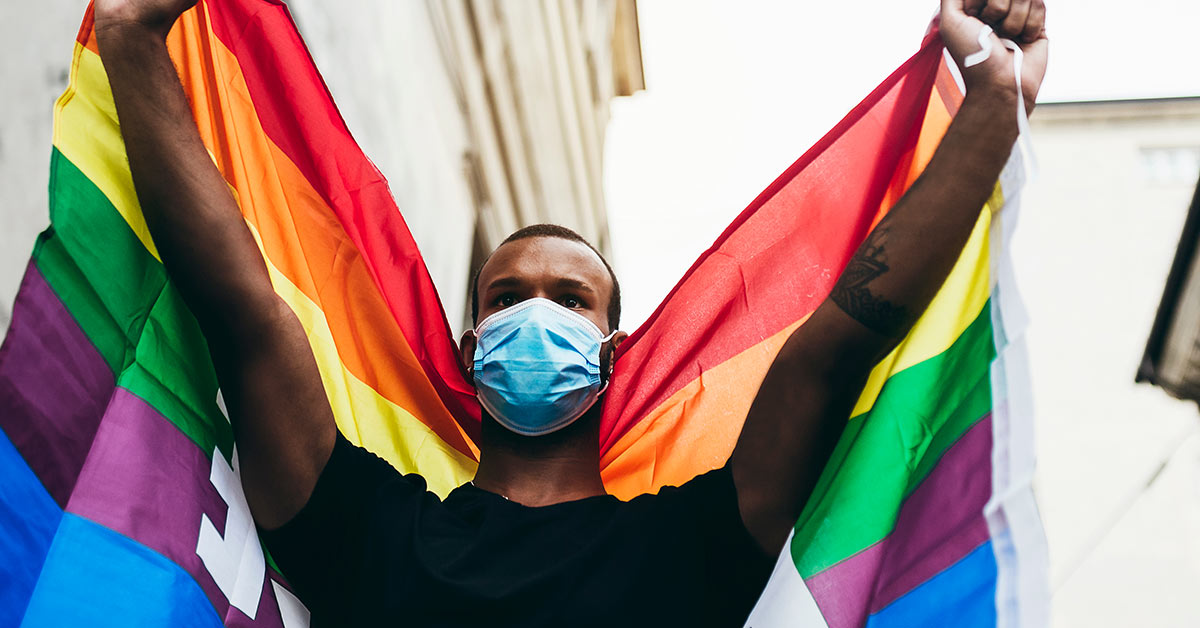Do we care about LGBTQ foreign nationals?

I recently found myself part of a group developing a resource around addressing xenophobia and Afrophobia and looking at the rights of refugees and asylum seekers. This work has exposed me to young people on the continent and their ideas about these issues.
As the process unfolded, I found myself wondering; do we, as South African LGBTQ people, care about the rights and well-being of LGBTQ people from other parts of the continent who are in this country for any number of reasons?
Xenophobia and the rights of foreign nationals, particularly other Africans, have been topical issues for some time. During the last election season, we saw one political party publicly and proudly campaign on their promise to rid the county of illegal immigrants. This political party, performed surprisingly well in the elections, which suggests that there are indeed people who agree with efforts to kick illegal foreign nationals out of the country.
Some of the reasons that are said to inform this sentiment are the lack of jobs and fears around safety, security and crime. (How these crimes are solely perpetrated by foreign nationals, beats me.)
LGBTQ people from other parts of the continent often come to South Africa because of our famous sexuality and gender protections and respect for human rights. As many African countries still criminalise homosexuality and there is social stigma around identifying as LGBTQ, they leave their countries of birth in the hopes of finding a life in which their rights will be protected, and their dignity upheld. South Africa has branded itself as a haven of sorts, but the truth is, it is anything but a haven.
So, do we as queer people care about the realities of LGBTQ Africans from other parts of the continent? Do we ever wonder if they are treated well by our authorities, if they have access to services, or if they are able to make a living? Or do we, just as broader society does, hold the view that South Africa is only for those who were born here?
Having had engagements with various foreign nationals, I know that settling in our country is not easy. LGBTQ migrants and asylum seekers often face enormous challenges at Home Affairs when they are seeking refugee status or a permit that enables them to live or work here. They are often met with homophobic (and xenophobic) officials, who are not afraid to show it, despite the Constitution outlawing unfair discrimination on the basis of sexual orientation.
The second difficulty they will face is integrating socially and economically; dealing with dual discrimination based on their nationality and sexual orientation or gender identity. As a result, the utopia they believed they would be coming to, turns into a kind of hell. They are likely to find that they will have to work with xenophobes and homophobes, who may also want to exploit their main vulnerability; their failed battle with Home Affairs to secure some form of legal status.
They may even face deadly violence from xenophobic vigilantes, as 43-year-old Zimbabwean Mbhodazwe Elvis Nyathi horrifically experienced when he was beaten and burned to death in the streets of Diepsloot by a mob who demanded to see his passport.
My involvement with the Breaking Down Borders Africa Initiative has humbled me and educated me in numerous ways. I have gotten to know exceptional young people from the rest of Africa who are doing amazing work. I have been able to meet other queer people from the continent who have shared accounts of life in their countries of birth; the good, the bad and the really ugly. I have been able to understand the hope desperate people have when they come to South Africa and how those hopes are often dashed.
I have become sensitised to the importance of legal advancements that can ensure the protection of the rights of migrants, in this country and in their countries of birth, because many do express a wish to live in their home countries if things were different.
As a result of this work, I am always quick to call out xenophobia, just as I am quick to call out homophobia. When I see reactions to posts by queer people on social media, particularly by other Africans, I am reminded why we need South Africa to be a real safe haven, to keep alive the hopes of those who come here. Because if not here, then where?
I am hopeful that our rights movements will realise the importance of uniting on this front; the need to include migrants and other displaced people, including LGBTQ people. I am also hopeful that the vulnerability of nationality and queerness can be better understood and addressed with the urgency it requires.
As the conversations around what will happen to foreign nationals in South Africa continue, I am further hopeful that we remember that the fruits of our freedom are enough for all of us, and sharing them with others will not leave us hungry.
What an amazing article full of the rather sad home truths. We cannot as South Africans be part of Africa and shun those who would settle here for whatever reason. We cannot call out cisgender and hetronormative behaviour if we as queer South Africans are not loving and welcoming to our fellow queer Africans